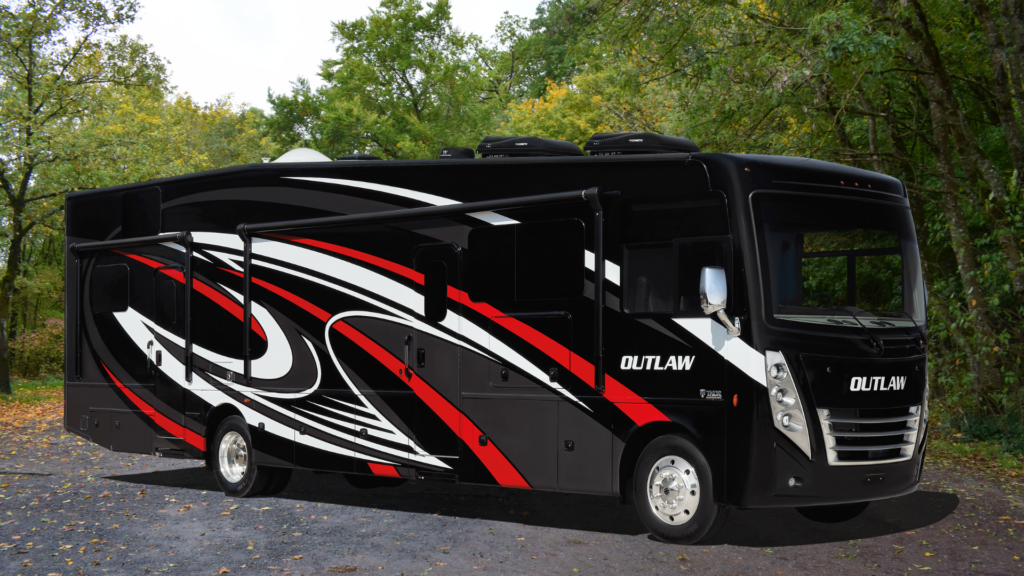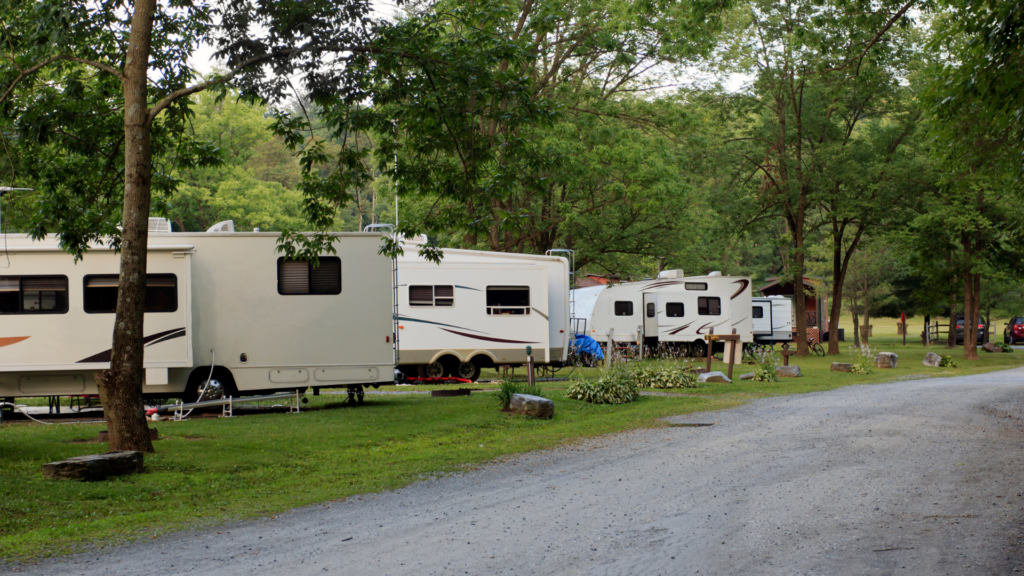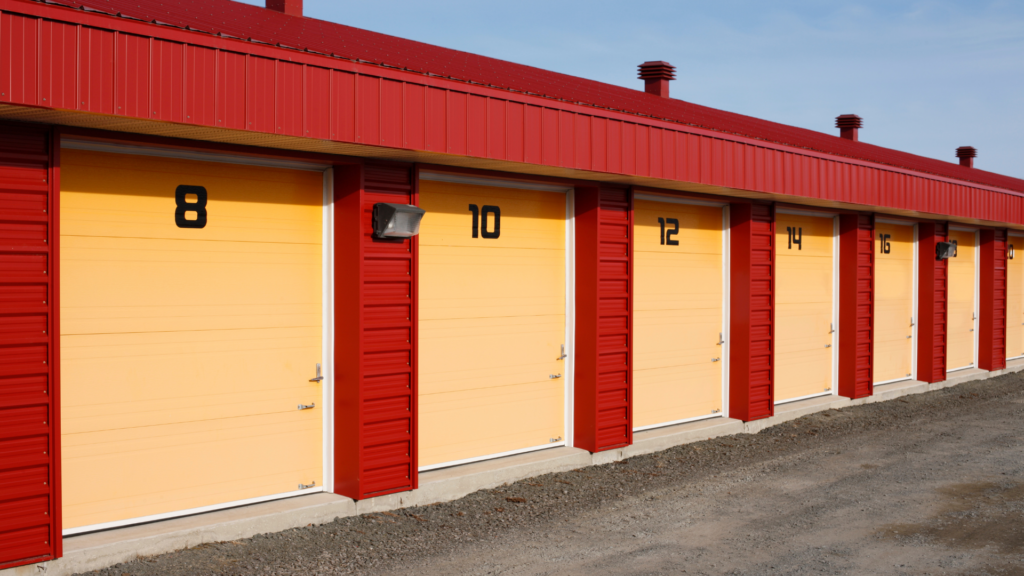You’re considering the full-time RV life. But how will you afford it? Can you keep living the same way you’re living on the road? Let’s take a look at how to make a full-time RV budget so you can know the true costs of the lifestyle.
Why Do You Need a Full-Time RV Budget?
If you don’t have a budget, you’ll think you’re on vacation 24/7 and might run out of money quickly. This is true for any lifestyle but especially for a travel lifestyle. You want to try the local foods, visit the local attractions, and experience new places. But if you don’t have a budget to guide you through your decision-making, you may not realize how much all of this costs.
When you’re planning whether or not to go full-time, making a budget can help. Do you have enough income or savings to sustain the lifestyle you want? And the lifestyle you want while traveling full-time may not look like someone else’s lifestyle, so you really have to go through this process to include the things that are important to you. For example, eating out may be very important to you, whereas another traveling family may always cook. Your budget for restaurants will be a lot higher than their budget.

Is It Cheaper to Live in an RV Than a House?
If you ask around the full-time RV living community, most people’s budgets are similar to those of living in a house. If you sold or rented out your house and no longer have a mortgage payment, you’ll have new budget items that fall into that category. For example, if you’re traveling more often, your budget for fuel will increase. If you bought an RV or tow vehicle, now you have that monthly payment. Although campground rates vary, they’ll be around $40 per night.
There’s a huge gap between paying rent in New York City and living in the suburbs of Raleigh, N.C. But overall, most people find that a $4,000 per month budget in a sticks-and-bricks house will transfer to a $4,000 per month budget in an RV. You just allocate it a bit differently.
If you think moving into an RV and traveling full-time is going to be cheaper, you’re probably going to be disappointed. Consider your budget for living in a house and use that number when you think about how much it will cost to live in an RV.
What to Include in Your Full-Time RV Budget
As mentioned above, the budget number will probably be similar, but the line items will be different. Let’s take a look at the breakdown of line items you need to consider when making a full-time RV budget.
RV Costs
All of these estimates will vary depending on your lifestyle. If you’re buying a class A motorhome with a diesel engine, you’ll be paying more for the RV and maintenance than someone who’s buying a travel trailer. Quality varies as well. Someone buying a Forest River Sabre fifth wheel will pay a lot less than someone buying a DRV Mobile Suites fifth wheel. Your monthly payment could be $200 or $800 per month. It all depends on the RV type and quality.
You’ll also need to consider repair and maintenance. Do some research on the different types of common repairs for your particular RV and prepare for those. Some full-time RVers keep $5,000 in savings set aside for repairs. Others keep just an extra monthly payment set aside. If you’re handy and want to learn how to fix problems yourself, it’ll be cheaper than going to a shop.
There’s also a maintenance checklist. These items are done monthly, quarterly, or yearly to prevent serious damage to the RV. Things like resealing the roof, lubing the slide outs, and cleaning out the AC unit will vary in cost.

Insurance
This is another budget item that will vary based on RV type and quality. You should be upfront with your insurance agent about your full-time RV living. Many companies don’t cover full-time RV living, and if you try to hide that and something happens, you’ll be footing the bill.
Progressive and Geico are two common insurance companies that many full-time RVers use. Call around before you make your decision. Your domicile state may also affect your rates. Some full-time RVers pay $600 twice a year. Others pay $800 twice a year. Once you have your rig, you’ll have a better idea of the insurance costs.
Costs of Camping
Other than the cost of your RV, the cost of camping will probably vary the most from RVer to RVer. Some full-time travelers buy camping memberships like Thousand Trails to save on nightly stays. These memberships are one-time purchases with yearly dues. One of the perks is no added nightly fee, so you can stay in certain campgrounds for “free” with the membership.
Other RVers don’t want to be limited by a campground membership. They want to travel freely about the country. Their cost for camping will be higher, but they won’t be paying thousands of dollars upfront.
And then the type of campgrounds you visit will also affect your camping costs. Resort-style campgrounds with lots of amenities cost $60-$80 per night, depending on the season. If you want to stay at state parks, you’ll pay about $20-$40 per night. Boondocking is the cheapest, outside the upfront costs for things like solar panels.
Also, budget for extras like dump station fees, electric fees, additional campers or pets fees, etc. Some campgrounds have everything included in the nightly rate, but others will charge extra for additional services. These can range from $5 per night to a flat $20 fee.

Fuel
Depending on how often you plan to travel, your fuel budget will vary. And this is true from month to month. You might travel a lot in March and April and then settle down somewhere for the summer. Where you travel also impacts your fuel budget. Fuel prices in Tennessee are less than fuel prices in California. Are you filling up with diesel or gasoline? These are things to consider when planning your full-time RV budget.
Groceries and Dining Out
Your groceries and dining out budget will probably be similar to your sticks-and-bricks house budget. If you ate out a lot while living in a house, you’ll probably continue to do that in an RV. If you ate only organic, whole foods while living in a house, you’ll probably continue to do that also.
Cell Phones and Internet
Are you going to work on the road? Do you need internet that is reliable enough for video calls and daily 9-5 use? What about the people you’re traveling with? Will the kids need to get online for school? These questions give you an idea about how much money you’ll spend on cell phones and the internet.
Don’t rely on campground Wi-Fi if you need internet for work. You must create your own setup if you want consistent connectivity. Learn how to stay connected (almost) anywhere with the best-selling course from RV Masterclass, Mobile Internet Explained. You could spend $100 per month or $400 per month, depending on your needs.
Storage
If you sell or rent your house, will you need a storage unit? For most people, the answer is yes unless family members are willing to store your things. There will be keepsakes, heirlooms, and other items you won’t sell before living in your RV full-time. Where will you put them? Storage units will vary depending on the company and size of the unit. A cheap, small unit will cost around $40 per month. A larger, climate-controlled unit could cost more than $100 per month.

Recreation and Entertainment
This is another area that varies from family to family. You can get a good idea of what you’ll need when planning your full-time RV budget by looking at your current spending. Similar to food, what you spend now will probably translate to what you’ll spend when traveling.
Also, consider your reason for traveling. Do you want to see and do things all over the country? Or are you trying to downsize? How much time will you have for recreation and entertainment if you’re working on the road when you also have to factor in drive days and travel? For some full-time RVers, this part of the budget is very important. They’re traveling because they want to experience things. Look into cost-saving memberships if you plan on visiting zoos, aquariums, cultural centers, museums, etc.
Is the Cost of Full-Time RVing Worth It?
The cost of full-time RVing is going to be similar to your budget when living in a house. If you’re ready to live in a much smaller space and want to see new places and do new things, then full-time RV living is worth it. If you’re looking to save money by moving into an RV, you’ll probably need to remain stationary and not travel as often. Fuel prices, camping fees, and entertainment while traveling can get expensive. Have you ever made a full-time RV budget? Have any tips or tricks to share?

Leave a Reply